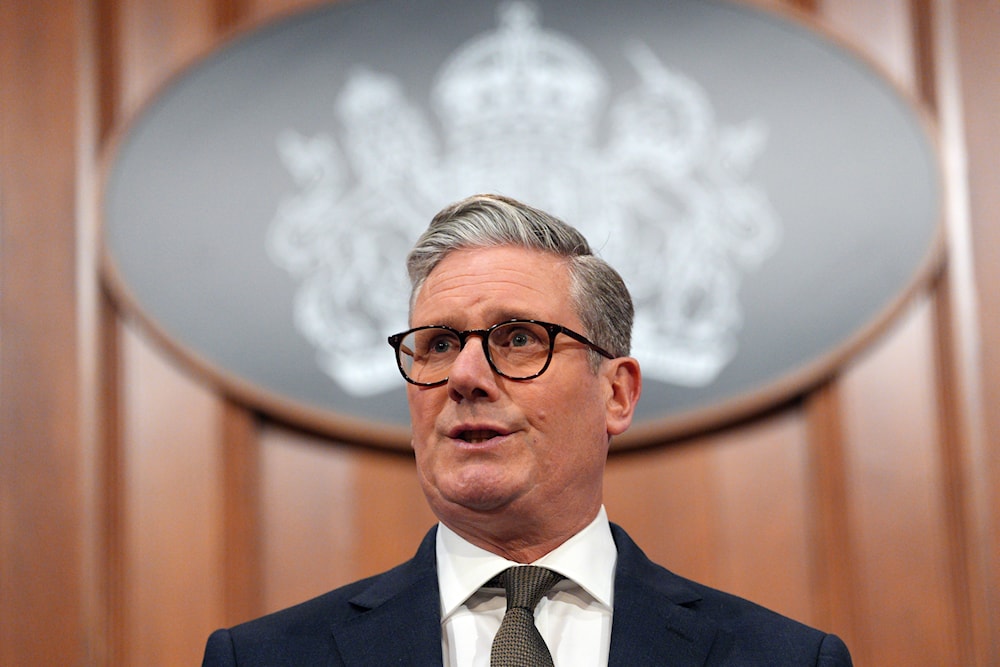UK-EU defense deal near as Starmer yields on fishing rights: The Times
The UK is close to securing access to the EU's €150 billion defense fund, with British arms companies set to benefit after Prime Minister Starmer agrees to key concessions on fishing rights.
-

Britain's Prime Minister Keir Starmer holds a press conference at Downing Street, London, on April 11, 2025. (AP)
On Tuesday, The Times reported that Prime Minister Keir Starmer is nearing a breakthrough in securing a UK-EU defense trade deal, which would allow British arms companies to access the EU's €150 billion defense fund. The agreement follows significant UK fishing rights concessions, marking a key shift in the UK’s post-Brexit relationship with Brussels.
As part of efforts to ease trade barriers, Starmer has agreed to a multi-year deal on fishing quotas, allowing EU access to British waters in exchange for UK defense firms’ participation in the EU defense fund.
The prime minister will host a UK-EU summit in London on May 19 to formalize discussions and strengthen ties.
According to the report, UK firms such as BAE Systems and Babcock, previously excluded from the EU’s Security Action for Europe (SAFE) fund, are expected to benefit significantly.
The fund supports the joint procurement of ammunition, air defenses, and drones, and London's inclusion follows pressure from the UK and growing cooperation with France over Ukraine.
At the upcoming summit, Starmer is expected to announce a £30 million drone deal with Syos Aerospace and unveil plans for a new UK-New Zealand defense partnership.
UK-EU security partnership talks advance amid political shifts
The Times reported that the UK’s renewed push for a UK-EU security partnership has gained momentum, despite earlier resistance based on a “Buy European” defense procurement principle, adding that improved relations with France and broader EU allies, coupled with support for Ukraine, have encouraged optimism about finalizing a defense pact.
Beyond defense, Starmer has agreed to dynamic alignment with EU food standards and the Emissions Trading Scheme, aiming to reduce border checks and enhance trade flow, adding that the fishing agreement, in particular, addresses long-standing disputes over quotas, with Britain accepting a freeze rather than further reductions in EU access.
While the UK defense industry’s £14.5 billion export value dwarfs the £1.7 billion fish trade, Starmer’s government is attempting to balance economic strategy with political sensitivities.
Concessions on fishing and regulatory alignment have been framed as necessary steps for broader economic and security benefits. An EU diplomat noted, "The British are making the concessions they need to. That is positive and shows a maturity that was not there in the Brexit negotiations."

 3 Min Read
3 Min Read










